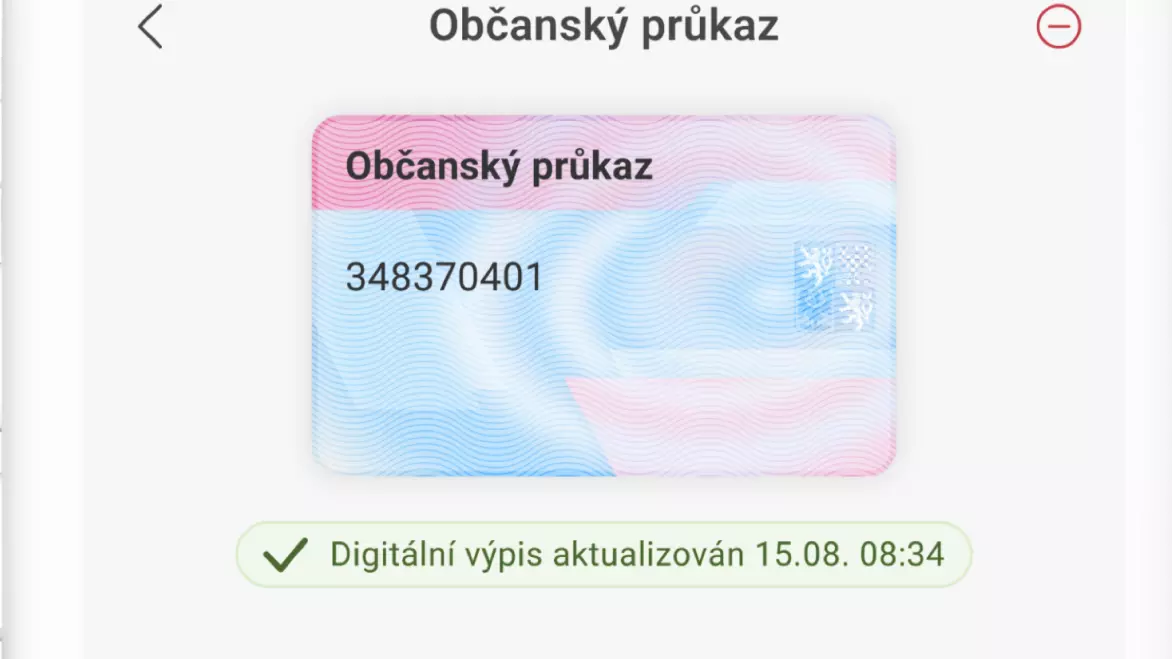Since Saturday, Czech citizens have had access to a new app, eDoklady, which allows them to store their electronic ID cards on their mobile devices. The app is designed to be an alternative to a physical card, which will remain valid. However, citizens will still need their physical ID cards for a while. Some institutions, such as employment offices, tax offices, or the police, must accept electronic documents only from July 1st. Some municipalities are voluntarily preparing for this situation.
“We had to wait until the Digital Services Act came into force after being signed by the pres”dent,” said Anna-Marie Lichtenbergová, spokesperson for the Digital Information Agency, explaining the slight delay. Initially, eDoklady was supposed to be valid from the turn of the year.
Establishing an electronic ID card assumes the citizen has a valid plastic ID card. From the ID card records, the application will download a photo and signature in the form they currently appear on the ID card after logging in. To set up an electronic ID card, some form of digital identity is needed, such as banking identity.
Verification will be secured with a numerical PIN of four to eight characters. Fingerprint or face recognition also works, but you must still enter the PIN if biometric verification fails. Bluetooth must be turned on during verification. Verification occurs by scanning the displayed QR code, but a photo also appears in the app. This prevents someone from proving their age with someone else’s borrowed phone.
Through thelse’sthe eDoklady app, you can also verify another person’s identity. This option will be available not only to offices but also to companies or citizens among themselves. For example, innkeepers can verify a customer’s age if they voluntarily decide to do so. Private companies will not be obliged to accept electronic documents yet. However, it can be expected that companies like banks will do this in their interest to improve services.
The app could also verify age at self-service checkouts in supermarkets in the future, but this requires a slight amendment to the law. The application development cost approximately ten million crowns and took seven months.





